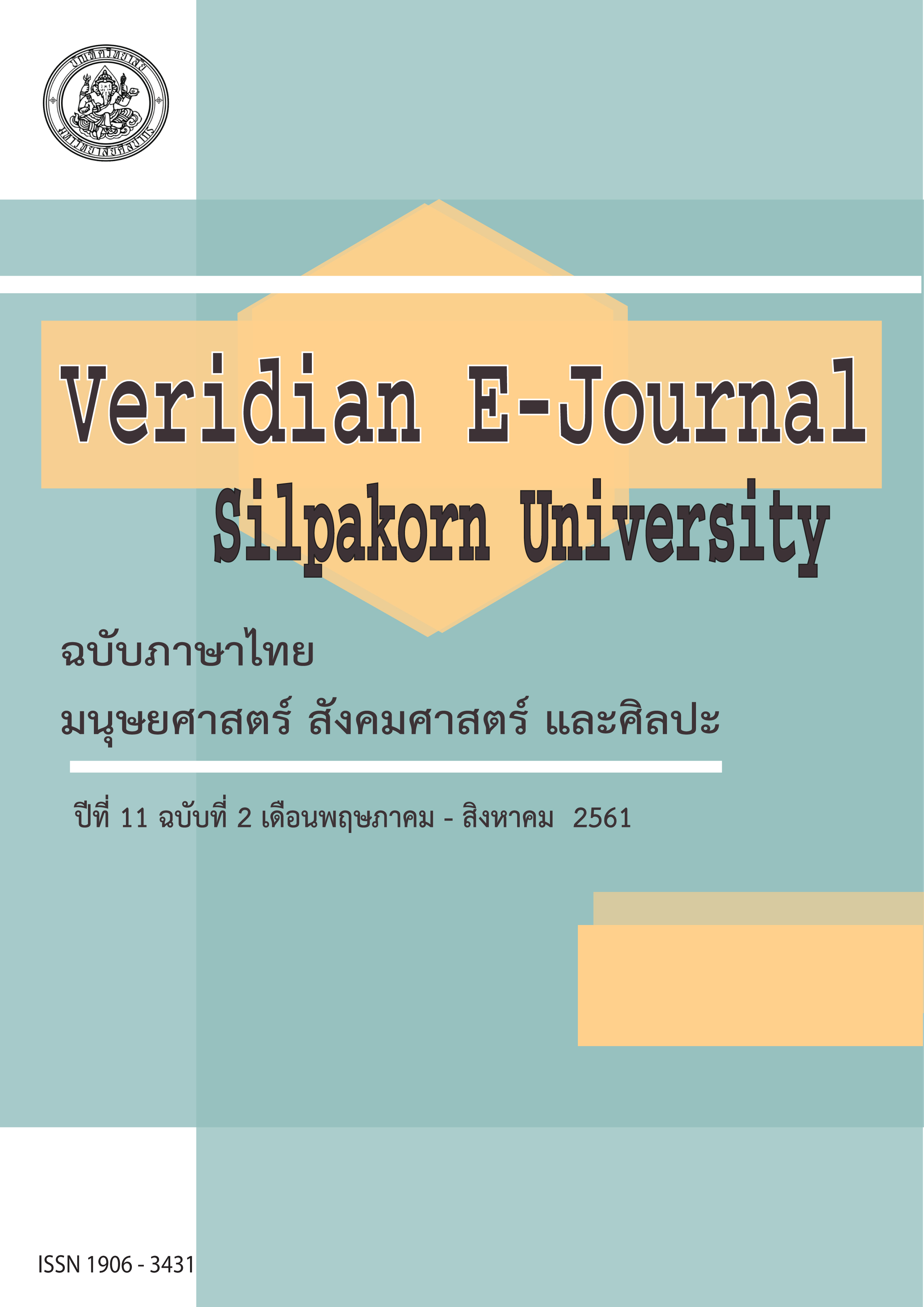ภาวะผู้นำการจัดการเชิงพุทธที่มีต่อสังคมในยุคไทยแลนด์ 4.0 (Leadership in Buddhist Management skills in the Workplace Sociology and Religion in Thailand 4.0)
Main Article Content
บทคัดย่อ
ตั้งแต่อดีตจนถึงปัจจุบันมนุษย์มีหลักการศึกษาเรียนรู้ ผู้นำเมื่อมีการศึกษาเรียนรู้ก็มีการพัฒนาขึ้นมาเลื่อยๆตั้งแต่ผู้นำครอบครัว ผู้นำชุมชน ผู้นำประเทศ ผู้นำโลก ประกอบไปด้วยผู้นำทางด้านบุคคล ผู้นำทางด้านการงาน ผู้นำทางด้านการเงิน ผู้นำนำด้านทรัพยากร และผู้นำแต่ละฝ่ายก็มีหน้าที่ของตนเช่น บิดา มารดา ก็มีหน้าที่เลี้ยงและดูแลบุตรตลอดจนสั่งสอนให้บุตรเป็นคนดี ครูอาจารย์มีหน้าที่สั่งสอนอบรมศิษย์ ให้มีความรู้และนำไปปฏิบัติพัฒนาแก้ปัญหาของสังคม ตลอดจนประเทศชาติ บ้านเมือง อีกทั้งผู้นำด้านการงานในหน่วยงาน ในองค์การ องค์กรต่างๆ ทั้งภาครัฐและเอกชน รวมไปถึงหน่วยงานรัฐวิสาหกิจ
ปัจจุบันนี้สังคมคมโลกมีการแข่งขันกันอย่างมากโดยเฉพาะด้านผู้นำด้านเทคโนโลยีสารสนเทศ มีการพัฒนาเปลี่ยนแปลงอย่างมาก ผู้นำได้นำทฤษฎีเก่าและทฤษฎีใหผม่มาประยุกต์ เป็นหลักนวัตกรรมในการขับเคลื่อนระบบเศรษฐกิจและสังคมของชุมชนประเทศชาติบ้านเมืองตลอดจนพระพุทธศาสนาให้เจริญก้าวหน้ามีการบริหารจัดการทั้งภาครัฐและเอกชนทางด้านการเมือง การปกครอง การศึกษา การเกษตร การพาณิชย์ การอุตสาหกรรม ตลอดจนศิลป์วัฒนธรรม ขนบธรรมเนียม จารีต ประเพณี จากรูปแบบเดิม ผู้คิด ผู้ทำ ผู้นำบริหารจัดการพัฒนาให้เป็นรูปแบบใหม่ที่ทันสมัยตามยุคการพัฒนานวัตกรรม ไทยแลนด์ 4.0
Furthermore, so long as capitalism remains the dominant world economic system, there is no reason for the situation of developed and underdeveloped countries to change. Underdevelopment is not a temporary condition, as had been thought in the past, but is a permanent condition. In fact, if the present world system does not change we can expect the core to become more powerful and the periphery weaker in the future. Rather than "catching up" to the developed countries, most currently underdeveloped countries will fall farther behind. Community leadership, Country leadership, World leadership are usually composed with more group combined together as Financial leadership, Human resource leadership. They are separated individuals apart at all times as Father, Mother as parenthood, they have a duty of care; they look after and take responsibility for their children. Teachers have a duty to ensure that students are not injured whilst they are in their care.• Duty-based ethics teaches that some acts are right or wrong because of the sorts of things they are, teachers have to pay a duty on the value of their students. All students can have a lesson learn and bring their knowledge to develop a country that their living with.
There is a core area (usually the capital) which dominates and exploits the periphery (interior) of the country. The nation's centers of economic, political, cultural, and military power are found in the national core, and the core's power and wealth grows more rapidly than that of the interior as a result of contacts and interactions between the two areas. The urban sector becomes increasingly powerful, while the rural sector becomes increasingly weaker. Resources flow from the periphery to the center. The core profits at the expense of the periphery as a result of the movement of products and resources. The passage of time does not bring a growing equality within the country, but rather brings about an increasing gap between life in the capital and that in the countryside. 8. In a sense, national leaders in the capital exploit the people for their own personal benefit and power. Consequently, these "national" leaders could really be conceptualized as agents of the international system. Their national power and prominence derive from their international contacts. It is they (the military, government officials, and commercial and financial leaders) who act as links between the Third World country and the world political and economic system. They direct the country's contacts with the world, and they direct those contacts in such a way that the world core benefits more than their own country, although they themselves clearly benefit at a personal level. These national leaders may actually have more in common with their counterparts of Micro and Macro Economics, Religion: Buddhism, Foundations, History, Systems, Mythology & Practice, Politics, Education, Agriculture and Culture. Learning, Thinking and Doing; concerned for Science & Technology, they are two things as; it should be able to assess personal learning styles and capabilities, using a learning file in which to record progress; describe the main definitions of learning as a process, and the role played by memorizing, understanding and doing. Developing Leadership skills in the Workplace as Thailand 4.0

